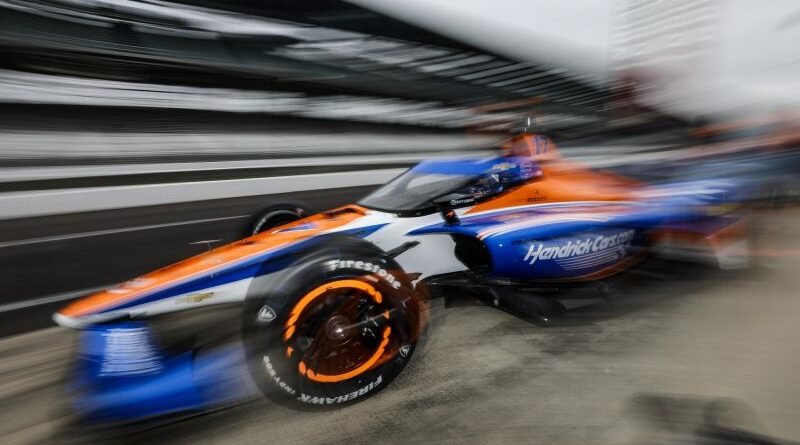Firestone Adds New Sustainably-Sourced Raw Materials to Race Tires for 108th Running of the Indianapolis 500
Firestone Adds New Sustainably-Sourced Raw Materials to Race Tires for 108th Running of the Indianapolis 500
- Firestone Firehawk Indy 500 race tires for this year’s event include two ISCC PLUS-certified monomers produced from waste residue of palm oil processing. 1
- All Firestone Firehawk race tires are produced at Bridgestone’s ISCC PLUS certified Advanced Tire Production Center (ATPC). 1
- The new Indy 500 race tires are the latest example of Bridgestone’s efforts to prove and accelerate the use of more sustainable materials and technologies through motorsports.

Bridgestone Americas (Bridgestone) is once again demonstrating and accelerating the use of more sustainable materials and technologies in motorsports at this year’s 108th Running of the Indianapolis 500.
As its Firestone brand celebrates 25 consecutive years as the exclusive tire supplier of the NTT INDYCAR SERIES and Indianapolis 500, Bridgestone has produced a Firestone Firehawk Indy 500 race tire that incorporates two monomers sourced from the waste residue of palm oil processing. The bio-styrene and butadiene monomers included in this year’s race tires are certified by the International Sustainability and Carbon Certification (ISCC) for the transparency and traceability of sustainable raw materials throughout the supply chain. 1
“Our racing heritage with Firestone dates back more than 100 years to the very first Indy 500 in 1911, and we remain focused on helping sustain the sport we love for future generations,” said Cara Krstolic, Executive Director of Race Tire Engineering and Production, Bridgestone Americas. “The demands of racing also offer the ultimate challenge for our innovation. In proving the same premium performance can be delivered at this level through more sustainable materials and technologies, we can work to extend these efforts beyond motorsports into solutions being designed for the future of mobility.”

In all, the Firestone Race Tire Engineering team and nearly 60 race tire production teammates will produce more than 5,000 Indy 500 race tires for use in practice, qualifying, and competition at Indianapolis Motor Speedway (IMS) during the Month of May.

Advancing Sustainability Through Motorsports
Using the sustainably-sourced monomers in this year’s Firestone Firehawk Indy 500 race tires is the latest example of Bridgestone’s efforts to prove and accelerate the use of sustainable materials and technologies through motorsports and the NTT INDYCAR SERIES.
- All Firestone Firehawk race tires for the NTT INDYCAR SERIES are manufactured at Bridgestone’s ISCC PLUS-certified Advanced Tire Production Center (ATPC) in Akron, Ohio. The facility was awarded the certification in 2022 for its transparency and traceability of sustainable raw materials including bio, bio-circular, and circular-based synthetic rubber. 1
- Bridgestone is once again partnering with Penske Truck Leasing and IMS to transport all Firestone Firehawk Indy 500 tires to the track using electric-powered Freightliner eCascadia trucks.
- Outside of the Indy 500, Bridgestone uses guayule-derived natural rubber in the sidewalls of the Firestone Firehawk alternate race tires made for NTT INDYCAR SERIES street course races. Guayule is a desert shrub grown at Bridgestone’s research facility in Arizona that is being explored as a potential alternative source of natural rubber.
Bridgestone continues to use world-class racing as both a global co-creation platform and a proving ground for delivering the values of the Bridgestone E8 Commitment. This corporate commitment outlines eight areas where the company is focused on contributing to a more sustainable world.
Bridgestone and Firestone motorsports activities demonstrate the E8 values of emotion, energy, and ecology. Together with broader initiatives across the company, these efforts are designed to help advance Bridgestone toward its targets of achieving carbon neutrality and tires made with 100% renewable and recycled materials by 2050.
1 The recycled material is allocated using the International Sustainability & Carbon Certification (ISCC) mass balance approach. Find out more about ISCC and our ATPC ISCC PLUS certification at: www.iscc-system.org.




